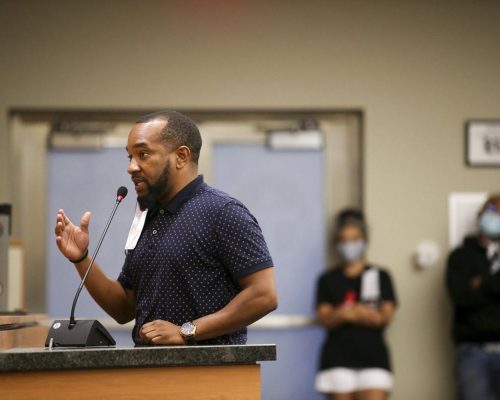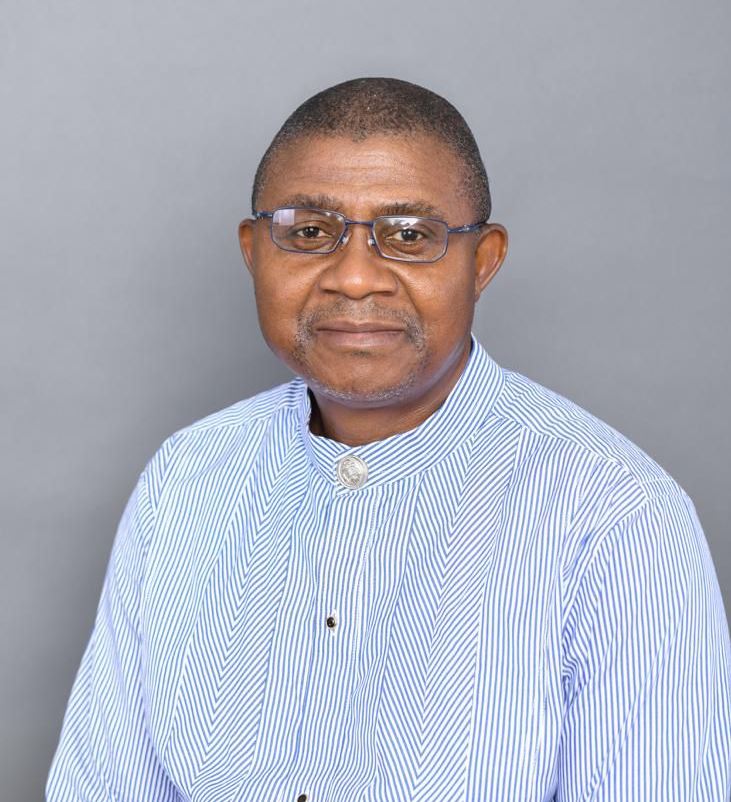Community organizer and former mayoral candidate Greg Robinson walked city councilors through a proposed process for exploring ways the city might make amends for the 1921 Tulsa Race Massacre on Wednesday.
He began by reminding councilors that the framework he was about to present was not set in stone and that ultimately it would be up to the descendants and survivors of the massacre, as well as other affected stakeholders, to determine the process.
“This is not a process any one or two entities can certainly move forward and lead,” Robinson said. “It’s a community-based process, so we are at the very beginning, and I want that to be very, very clear.”
The mayor and City Council in June passed a nonbinding resolution in which they committed to establish a community-led process within six months to evaluate the recommendations of the state’s 1921 Tulsa Race Riot Commission and other potential repairs for the harm caused during the massacre and since.
The massacre of May 31-June 1, 1921, displaced thousands of people and left 35 blocks of the prosperous Black neighborhood of Greenwood in ashes. Thirty-seven deaths from the violence have been confirmed, but the actual figure is widely believed to be much higher.
City Councilor Vanessa Hall-Harper, whose district includes the Greenwood area, has been working with Robinson, owner of Standpipe Hill Strategies, and World Won Development to come up with a preliminary framework for what the process might look like.
The proposed framework, titled “Beyond Apology: A collective action toward repair for the Tulsa Race Massacre,” describes a nine- to 12-month process that would include a series of community meetings throughout the city.
But Robinson said initially priority would be given to descendants and survivors of the massacre in an attempt to provide a safe space for them to learn about restorative justice and to voice their opinions.
“The tenets of it are an engagement process that is rooted around educating community members and then hearing voices, and then going through a process of researching and creating some potential recommendations in a report form to be provided to legislators and policymakers like yourselves,” Robinson said.
About $51,000 in private dollars has been raised to fund the community engagement effort. Robinson said those funds would be held and administered by World Won Development. The community-development firm has a long history in Tulsa, including leading the city’s community engagement for the Kirkpatrick Heights and Greenwood Master Plan redevelopment project.
Robinson said the public engagement process is not intended to dictate what councilors do to address the inequities created by the race massacre or how they should feel about what should be done.
“We are creating a process that you (city councilors) can engage in with experts from across the country that have done this kind of work,” Robinson said.
Those experts could include Human Rights Watch, the National African American Reparations Commission, the National Coalition of Blacks for Reparations in America, and First Repair, Robinson said.
The City Council resolution approved in June makes no mention of reparations or any other specific remedy for the damages caused by the massacre. And Robinson said the public engagement process is not intended to be a forum in which that subject is debated.
“These convenings won’t be a space to debate whether this thing should occur,” he said. “They’ll be a space to talk about what the harms are and how those could be repaired, or should be repaired, from Tulsans’ perspective.
“I do want to name that, because there is a place for debate. It just won’t be within this space.”
Robinson noted that the council’s resolution does not pertain exclusively to descendants and survivors of the race massacre but also to those affected by subsequent policies that led to discrimination and inequalities.
When it comes to identifying descendants and survivors, Robinson said there are organizations committed to “providing justice for their descendants” that have collected that kind of information.
“In engagement, we normally say, ‘If you feel you are an impacted stakeholder, we are not here to debate that,’ because on the whole that will come out, right, in the data and in the stories and in what people are prioritizing.”
Robinson said that question may take on a new meaning when it comes time to discuss specific repairs and who should receive them.
“Again, there are best practices from other parts of the country that have instilled these types of policies and how to go about that,” Robinson said.
Councilor Phil Lakin questioned Robinson about whether he would be open to considering a full range of possible repairs for the harm caused by the race massacre. Robinson has been a vocal proponent of reparations.
“I have heard things that make me believe that you just have one intention or wish about what you want us to do,” Lakin said.
Robinson said the process would not be dictated by him or his personal feelings.
“I am a professional organizer, and I do community engagement professionally,” Robinson said.
He then made clear his personal views on the issue.
“I can absolutely say: Do I believe in reparations? Yes. Do I believe that it is long overdue? Yes. Do I have certain thoughts and put out plans about what I would do? Yes. But I don’t get to determine that,” he said.
“And when you look at national best practices, when things have been done they have been done out of a deeply, sometimes contentious, impassioned but … deep community engagement process nonetheless.”



